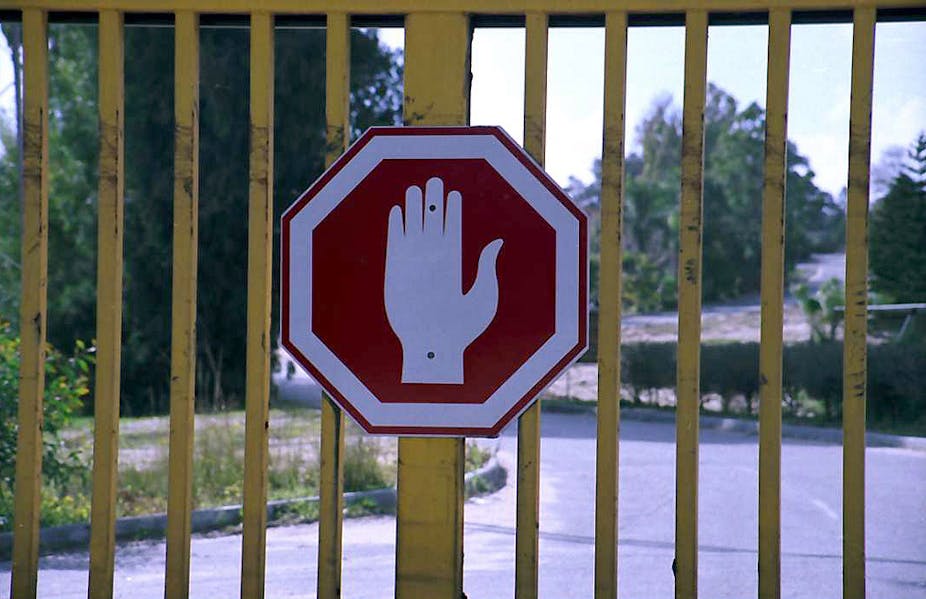After years of declarations, warnings and internal bickering, the European Union has finally done it. On Friday, Brussels is expected to announce that future agreements between the EU (or any of its member states) and Israel will include a clause which explicitly excludes the funding of and co-operation with Israeli institutions that operate in territory seized by Israel in the Six Day War of 1967.
The implication is that all 28 member states will be forbidden from collaborating or awarding money to anyone who resides in Jewish settlements beyond the Green Line. Israel’s settlement activity in territories captured from Jordan, Egypt and Syria began shortly after the 1967 war, and has now reached some half a million settlers in the West Bank (including East Jerusalem) and 20,000 in the Golan Heights. The new rules will be in place from next year and will not affect trade, although some EU members already label products made in the settlements.
The political and economic implications of the EU’s move cannot be over-estimated. Since the Venice Declaration of 1980 the EU and its predecessor, the European Community, have denounced Israeli settlements as illegal under international law. By contrast, successive US administrations, including Obama’s, have preferred to describe the settlements as merely “illegitimate”.

The new guidelines may thus be viewed as not only long overdue, but as the most dramatic manifestation of the EU’s resolve to close the gap between its rhetoric and its policy actions in the Israeli-Palestinian conflict.
Tough choice for Israel
Israel is also faced with a historic dilemma. If it accepts the EU edict, this implies that, in essence, the government does not view the settlements as integral parts of the state, thus in effect abandoning half a million of its citizens.
But if it rejects the clause, it will jeopardise dozens of scientific, cultural and educational agreements and collaborations with the EU. Israel’s science and technology minister, Yaacov Peri, says that up to 40% of the country’s scientific and academic research is likely to be hit as a result. Under the EU’s 7th research framswork (FP-7) between 2007 and 2013, more than €750m helped fund some 2,000 Israeli scientific, academic and medical projects.
The indignant tone and substance of the Israeli government’s response to the news from Brussels is not surprising. Israel’s prime minister, Benjamin Netanyahu, has warned the EU ban will do nothing more than hinder the current efforts by the US secretary of state, John Kerry, to kick-start talks with the Palestinians. Israel, he maintains, will not bow to external diktats.
And after a long period of souring relations between Jerusalem and Brussels, there is a popular sentiment in Israel that - rather than solving more immediate regional crises such as the civil war in Syria and Iran’s nuclear programme - the EU has devoted disproportionate time and effort to an issue which ought to be resolved bilaterally between the parties to the conflict.
Netanyahu under pressure
But for many of Netanyahu’s critics at home and abroad, including the justice minister and former foreign minister Tzipi Livni, Netanyahu’s insistence that the core issues of the settlements, Jerusalem and refugees should only be settled through direct negotiations with the Palestinian Authority, now lies in ruins.
Not only has Netanyahu failed to take the initiative and enter into a constructive dialogue with the Palestinian Authority president, Mahmoud Abbas, over the past four years, but the EU ban is certain to further embolden the Palestinians and make them more inclined to pursue unilateral actions to achieve their aims. We have already seen this with their recent successful bid to upgrade Palestine’s status at the United Nations to a non-member observer state.

The EU’s decision will reinforce what most Israelis - certainly the leadership - have long suspected: that the EU holds a strong anti-Israel bias and that it cannot be trusted as a responsible political actor in the peace process.
And it seems that the success of Israeli governments over the years to separate the political and economic dimensions in their dealings with the EU has now come to an end. For the first time in the history of Israeli-European relations, Brussels has indicated that it will no longer turn a blind eye to Israeli violations of international law while continuing to the reap the fruits of its very rewarding scientific, technological and academic collaborations with Israeli citizens and institutions.
The likely result of this move is two-fold: an Israeli attempt to divert public attention from settlement activity to the Iranian and Syrian issues, and an appeal by Jerusalem to Washington to apply pressure on the Palestinians to return to the negotiating table without preconditions.
And while the provision that the new EU guidelines will not come into effect until 2014 it may provide both parties with a much-needed interval to find a workable, face-saving solution to this crisis. It seems certain that it will take some time to rebuild EU-Israeli bridges after their spectacular burning this week.

